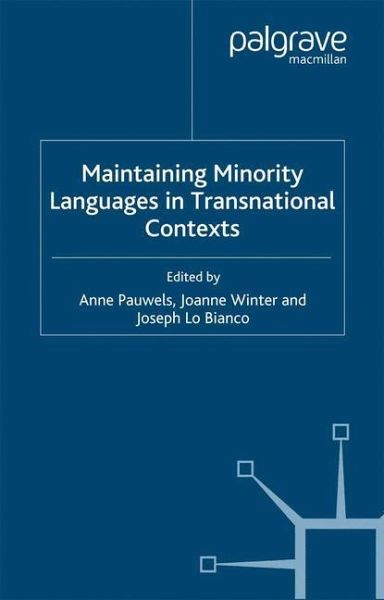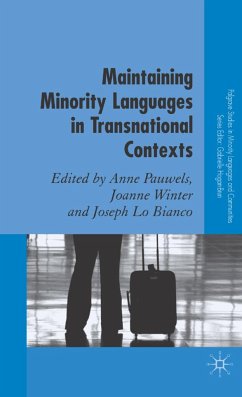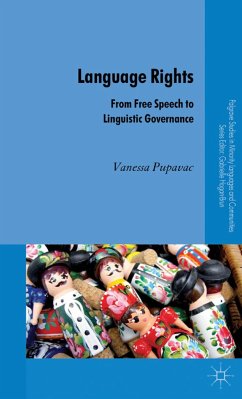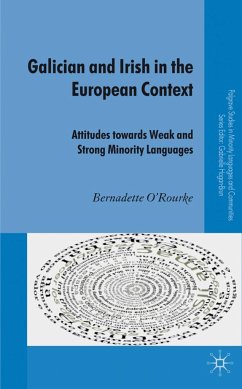
Maintaining Minority Languages in Transnational Contexts
Australian and European Perspectives
Herausgegeben: Pauwels, A.; Winter, J.; Bianco, J. Lo; Lo Bianco, Joseph

PAYBACK Punkte
19 °P sammeln!
Deals with challenges to the maintenance of minority (or community) languages in this era of globalization and increasing transnational movements of people. The contributors, experts in language policy, language maintenance and multilingualism offer complementary perspectives from Australia and Europe on the maintenance of linguistic diversity.














